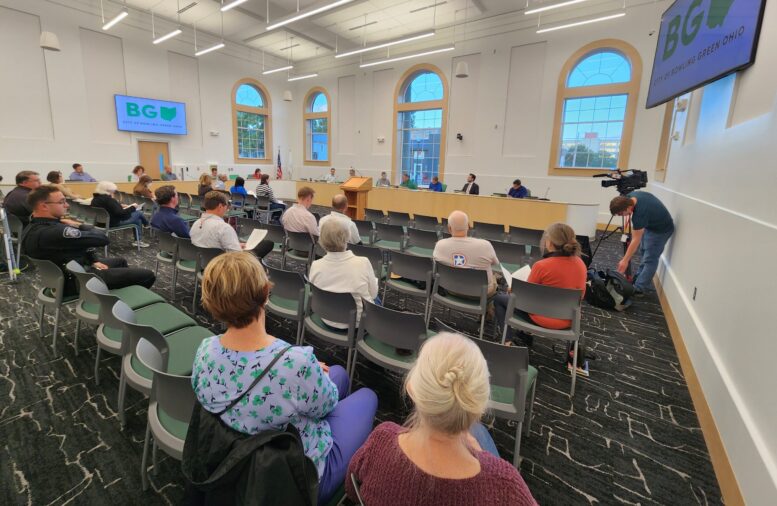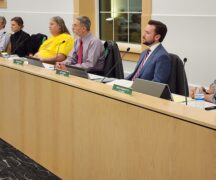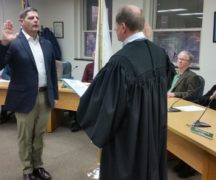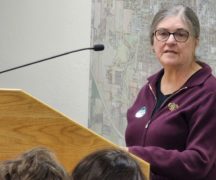By JAN LARSON McLAUGHLIN
BG Independent News
An ordinance intended to get rid of non-conforming zoning uses due to over-occupancy of rental housing was rejected Monday by Bowling Green City Council. While council members spoke in favor of the intent, some questioned if the ordinance would create more problems than it would solve.
The vote was 5-2, with Rachel Phipps, Jeff Dennis, Joel O’Dorisio, Bill Herald and Greg Robinette casting “no” votes, and Mark Hollenbaugh and Nick Rubando voting “yes.”
Rubando cautioned that landlords will be emboldened by the ordinance rejection, and are already trying to get the self-inspection requirements lightened for rental housing.
Phipps explained her vote against the ordinance, by saying the problem of non-conforming properties due to occupancy is very small. Attorney Mike Marsh said there are presently 22 reported cases of over-occupancy of rental units.
Phipps said she wouldn’t support such a substantial change in the ordinance to correct such a small problem. She objected to vague language in the ordinance referring to “aesthetic harmony” and “injecting vitality.”
“I don’t think this ordinance can be fixed tonight,” she said.
Herald agreed, suggesting that council “take a step back,” and take more time to get it right. He proposed the legislation be sent back to committee or the planning commission for hashing over.
“Not because I don’t agree with the concept,” he said.
“Conceptually we’re in agreement something must be done,” Herald said.
Robinette also voiced concern about the “confusing” and “unclear” terms in the ordinance. He suggested a thorough review of non-conforming properties to determine the scope of the problem and possible solutions.
Dennis suggested council allow time for implementation of the new zoning code. “I think we need to enforce the law we’ve got,” he said.
O’Dorisio said he would like to see a reduction in non-conforming properties, but agreed the ordinance needs more study.
But Hollenbaugh asserted that even if the number of non-conforming rentals are few, they affect neighborhoods.
“It is a problem, especially if one of these properties is next to your home,” he said.
Rather than putting off passing the ordinance, Hollenbaugh suggested council adopt it, then work on tweaking it. “I say we can pass this tonight,” he said.
But when the vote was held, the legislation fell short.
A public hearing was held earlier this month on the proposed ordinance amendment that would sunset non-conforming zoning uses due to over-occupancy in the city after 28 years. The ordinance change was intended to make properties conform to their zoning designation.
For many years, the city limited the number of people living legally in a rental home to three unrelated people. That policy was challenged in court, and the city now restricts the resident number to one per bedroom.
The primary non-conforming properties in the city are rental housing properties, Hollenbaugh said last month. Such “grandfathered” properties can house far more renters than under the current zoning code, he said.
The period of 28 years was selected because the city has to give someone who just bought a property the chance to recoup their investment. The IRS considers that period to extend 27.5 years.
Earlier during Monday’s council meeting, Mayor Mike Aspacher and some council members acknowledged hearing from landlords about the burdensome requirements of the city’s rental self-inspection process. Aspacher said he plans to meet with local landlords to discuss their concerns with the self-inspection requirements.
“We are open to reassessing the forms and the timelines,” Aspacher said. He plans to report back to council on ideas of “a process that’s not overly burdensome to the property owners.”
Rubando also voiced his concerns about the pressure imposed by some landlords who are posting signs for City Council candidates who are opposed to rental regulations adopted by current members of council.





